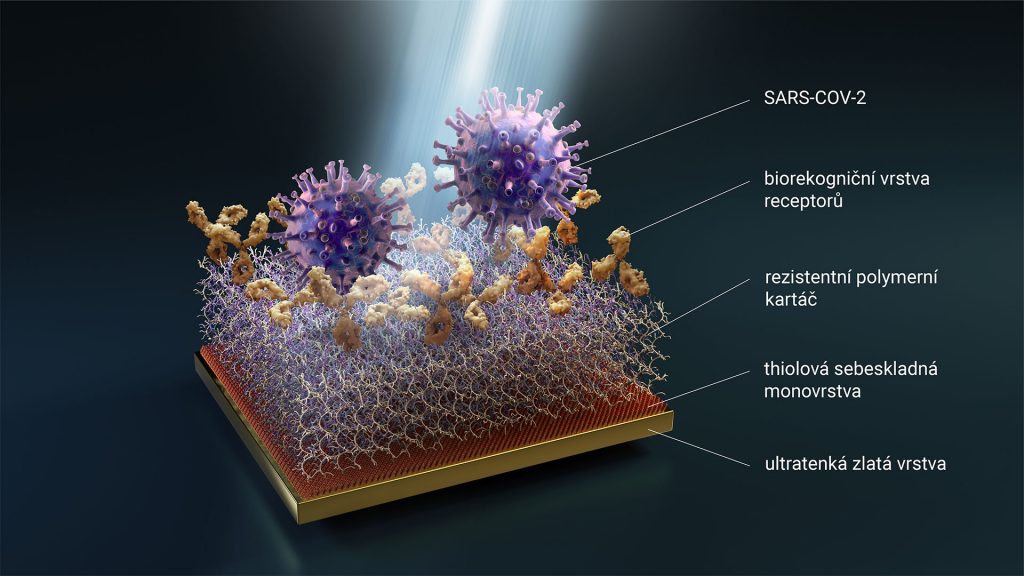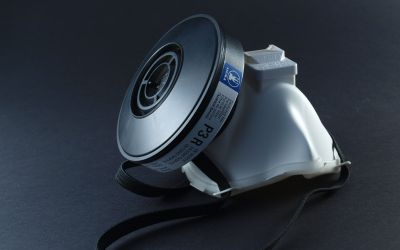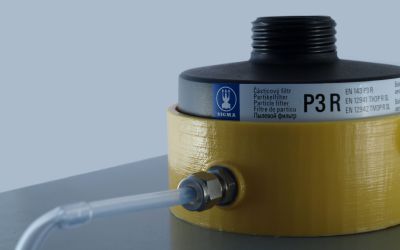This website uses cookies so that we can provide you with the best user experience possible. Cookie information is stored in your browser and performs functions such as recognising you when you return to our website and helping our team to understand which sections of the website you find most interesting and useful.
Vyhledávání
Biosensor can detect coronavirus before the start of the formation of antibodies
The NCC for MATCA is developing new and fast coronavirus detection method. The new biochip will detect coronavirus directly, meaning it will also identify the illness in people whose antibodies have not formed yet. The testing kit can fit into a portable box and is able to detect the presence of the coronavirus within 30 minutes from the collection of the sample.
The technology that can directly detect the SARS-COV-2 coronavirus particles instead of the so called rapid testing, which is based on a complicated search for antibodies in patients, is currently being developed by a research group led by Hana Lísalová from the Department of Optical and Biophysical Systems from the Institute of Physics of the Czech Academy of Sciences.
“We decided to focus on the development of highly sensitive and portable biosensor for the detection of coronavirus. This biosensor can detect the presence of the virus not only in bodily fluids but also in other samples such as swabs from clothing or water, “ Hana Lísalová from the Institute of Physics of the Czech Academy of Sciences explains.
The development stage of the biochip was concluded within a very short time; this is because the proposed procedure is based on the already existing cooperation with a Protection Services of Czech State Police focused on the development of a portable biodetection system for fast detection of pathogens in food.

Using a laboratory functional sample, the researchers have demonstrate unique properties of this fast and sensitive detection. “For example, we managed to detect Escherichia coli O157:H7 or Salmonella typhi in a homogenized hamburger within 20 minutes,” says Alexandr Dejneka, who cooperates on the project with Hana Lísalová. The sensitivity of the method can be illustrated on the fact that the aforementioned bacteria were unequivocally proven in the order of units per millilitre of the sample. A comparable sensitivity was also achieved during the detection of the Hepatitis A virus in food samples.
The testing of the system was previously agreed to take place at the Institute of Parasitology of the Biological Centre of the Czech Academy of Sciences and at the Faculty of Natural Sciences of the University of South Bohemia in České Budějovice.
Versatile technology
The developed biodetection systems are based on the so called ultra-resistant polymer surfaces, which are able to retain their functional recognition properties in direct contact with real biological media. This technology is extremely versatile and can be easily adapted to any other type of a substance or to any other types of samples. The biosensors are disposable polymer biochips, which can be re-used in the case of a negative response.
If the development of the new biochip proceeds according to plan, functional prototypes might be available within several months. Academia can ensure the production of hundreds of biochips; after acquiring a higher number of tests and reducing biochip price, it would be necessary to scale their production and find a suitable industrial partner.
Where can you read more about the project?
More information at the website of the Czech Academy of Sciences, ČT, ČTK, in Mladá fronta DNES from 9 April 2020, in Lidové noviny from 9 April 2020 and other media.
Other activities in the fight against COVID
Respiratory Protective Masks in Serial Production
In response to the shortage of personal protection equipment, the members of the consortium launched a serial production of protective masks.

Ozone disinfection
We are developing portable and stationary disinfection and decontamination devices based on an ozonier of proprietary design.


 The NCK for MATCA is supported by the
The NCK for MATCA is supported by the